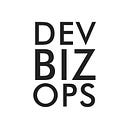Mad Max Overflow, the Stack Warrior
The year is 2029. In a post-apocalyptic world, society is in chaos. The rule of law has broken down as gangs of hackers terrorize the people as they seek to gain control of the most valuable precious resource left in this desperate land; the Stack Overflow.
The ancients say that world changed forever on Feb 23rd of 2018. That is the day the programmers refer to as “Codeageddon”, the day Stack Overflow was no more. All over the world, development ground to a halt as software projects stalled, code commits went awry, and developers froze in panic as tickets, bugs & feature requests piled up.
But then, The Architect, known to some as Nick Craver, discovered a wormhole in the Interwebs. He traveled back in time, rallied the motley ragtag team called the Guardians of the Stack, and battled the bandit Web Servasaurus to restore order to the programming world and thus saving humanity from software chaos.
Ok, so maybe this is not Oscar material, but they did have a bit of a problem. It’s not the first time either as on very rare occasions they get hit by things that takes down the site. Sometimes it’s attacks like what hit GitHub last week, sometimes it is the unaccounted for situations, and sometimes they goof up. The good thing though is that they are pretty transparent about it.
This underscores an even more fundamental point. Stack has a real impact on developer productivity. Some have tried to estimate what the value of Stack Overflow is. What is undeniable though is that it has become the de facto standard for generally available programming knowledge for over 50 million programmers that visit the site 250,000,000 times per month.
What about the specific knowledge inside companies, tribal knowledge or information that is proprietary in nature? You say there is nothing that exists? That would not be a surprise, the importance of capturing important and useful technical knowledge is only paid lip service in organizations.
When you have never had something, it’s hard to understand the impact of losing it. As an aside, isn’t that the crux of every break-up song? Because knowledge is highly fragmented (if it’s even captured), the impact of not having knowledge centralized and discoverable is hard to fathom. But once knowledge is captured and the system is ingrained in the flow of developers, it becomes every bit as important as other parts of your developer tooling.
If you are a developer reading this, you get this. If you are a CTO / CIO / IT leader, it is not as obvious what an internal technology knowledge base can do for an organization. The good news is that there are capable tools and proven case studies of other organizations seeing a real impact in faster software delivery by building community based knowledge repositories, stories that we will continue to share on this blog.
How you are managing your internal technical knowledge today? Do you consider this knowledge critical for how you do things in your team?
Why are there no “sleeper” planes?
Could have used a sleeper plane this week and for my upcoming travels…
We help IT leaders in enterprises solve the cultural challenges involved in digital transformation and move towards a community based culture that delivers innovation and customer value faster. Learn more about our work here.
